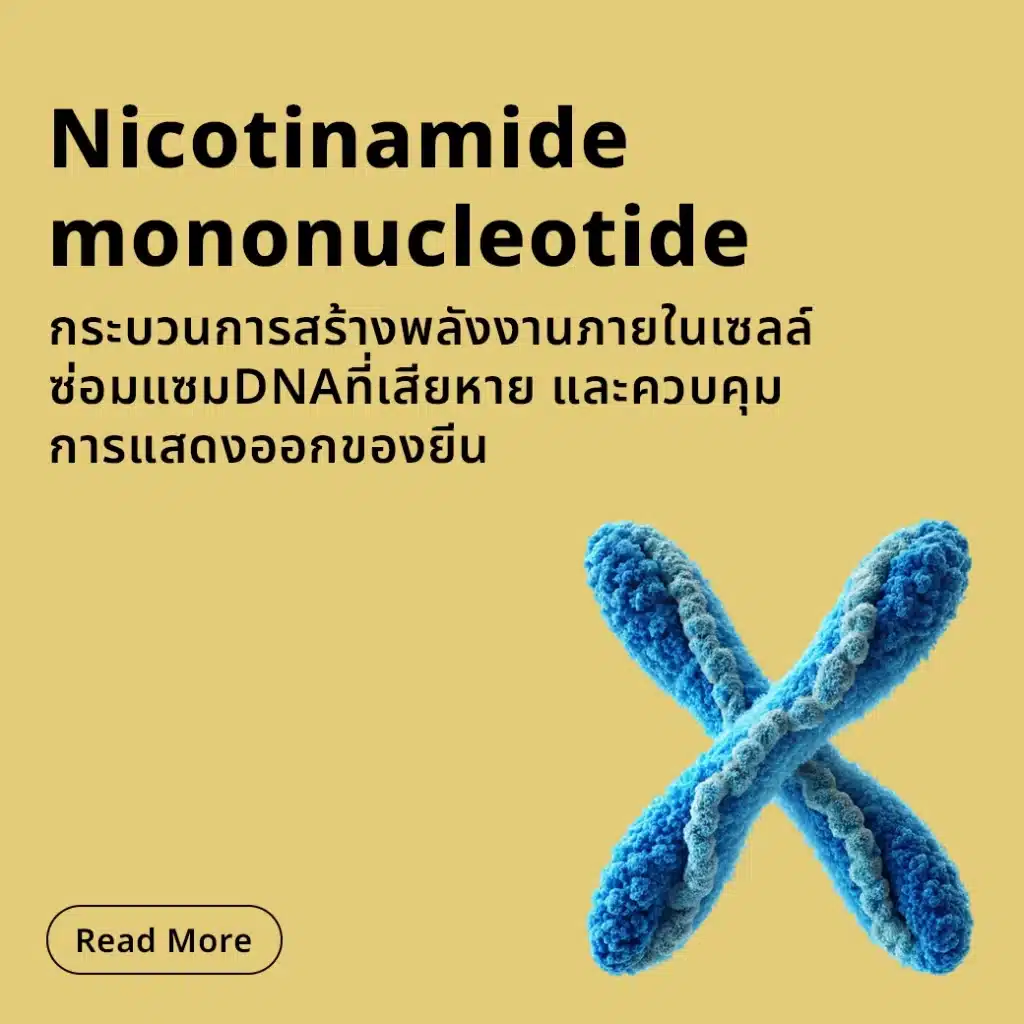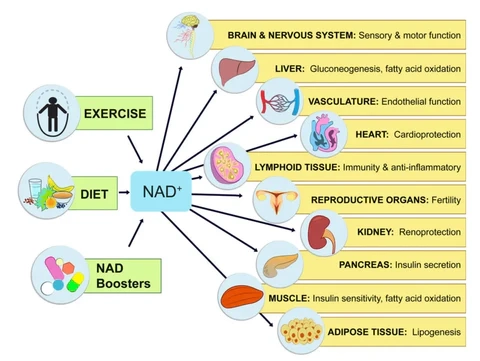NAD+ LEVEL
Evaluate Cellular Aging by Measuring Your NAD+ Levels

ขอบคุณรูปภาพจาก : https://www.nad.com/what-is-nad
NAD+ (Nicotinamide Adenine Dinucleotide) is a compound derived from vitamin B3 that plays a vital role in various cellular functions. It acts as a coenzyme in redox reactions, supporting energy production, DNA repair, and gene regulation.
Research has shown a clear link between NAD+ levels and the aging process. As we grow older, our NAD+ levels naturally decline, contributing to age-related diseases such as metabolic disorders, certain cancers, and neurodegenerative conditions.
NAD+ also activates several key enzymes essential for maintaining cellular health, including Sirtuins, PARPs (Poly ADP-ribose Polymerases), and CD38.
- Sirtuins are responsible for regulating metabolism and ensuring chromosomal stability.
- PARPs play a role in DNA repair by identifying damage and supporting the synthesis of new DNA strands.
- CD38, found on many white blood cells, increases with age and negatively impacts mitochondrial function, which in turn reduces the body’s energy production.

What Happens When NAD+ Levels Are Low?
Studies confirm that NAD+ levels gradually diminish with age. Other contributing factors include poor lifestyle choices such as excessive alcohol intake, obesity, and oxidative stress.
Low NAD+ levels can lead to a range of health issues and symptoms, including:
Fatigue
When NAD+ is insufficient, cells struggle to generate energy efficiently. As a result, fatigue can occur even when you’ve had enough rest.
Brain Fog
NAD+ is vital for brain cell function. When levels are low, mental fatigue, poor concentration, and sluggish thinking may appear.
Tired and Dull Skin
Healthy NAD+ levels help keep your skin vibrant and youthful. Low levels may result in dull, lifeless skin with signs of fatigue.
Oxidative Stress
This silent process damages proteins, DNA, and cells, accelerating aging and increasing the risk of diseases like diabetes, cancer, and Alzheimer’s.
Sleep Disruption
Low NAD+ levels may contribute to insomnia or disturbed sleep, such as frequent waking during the night. Supplementation can help restore better sleep cycles.


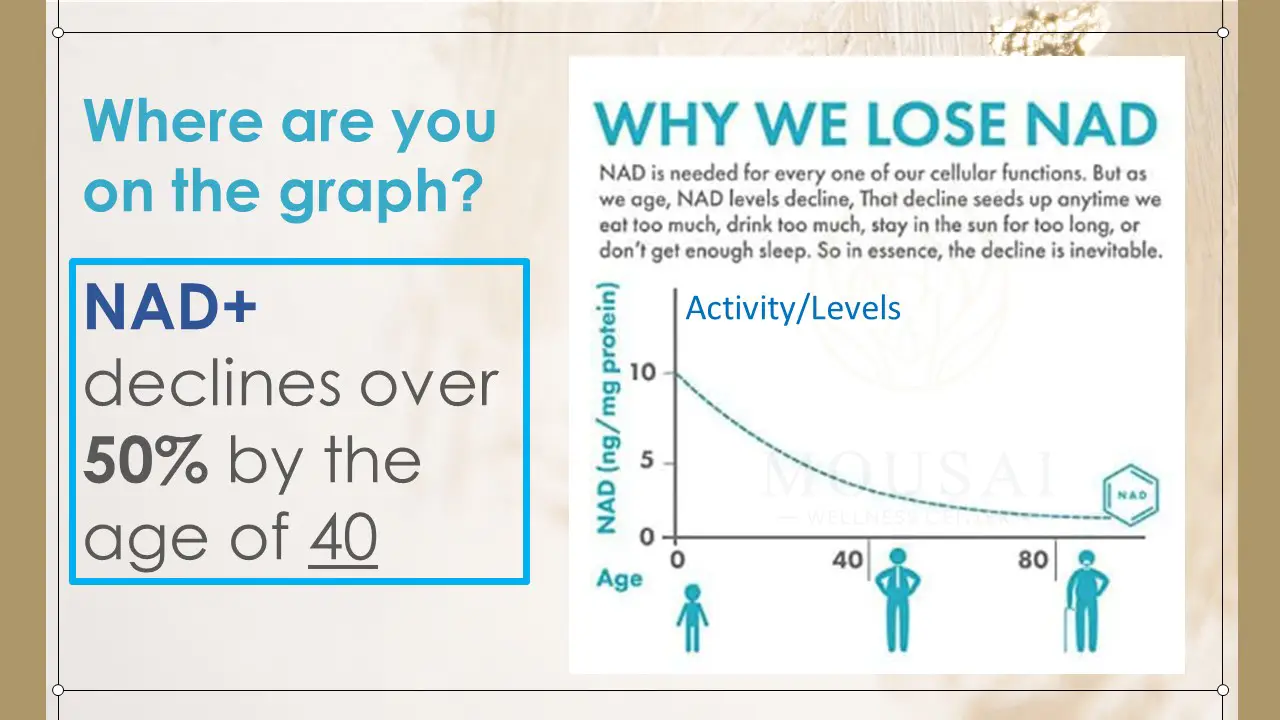
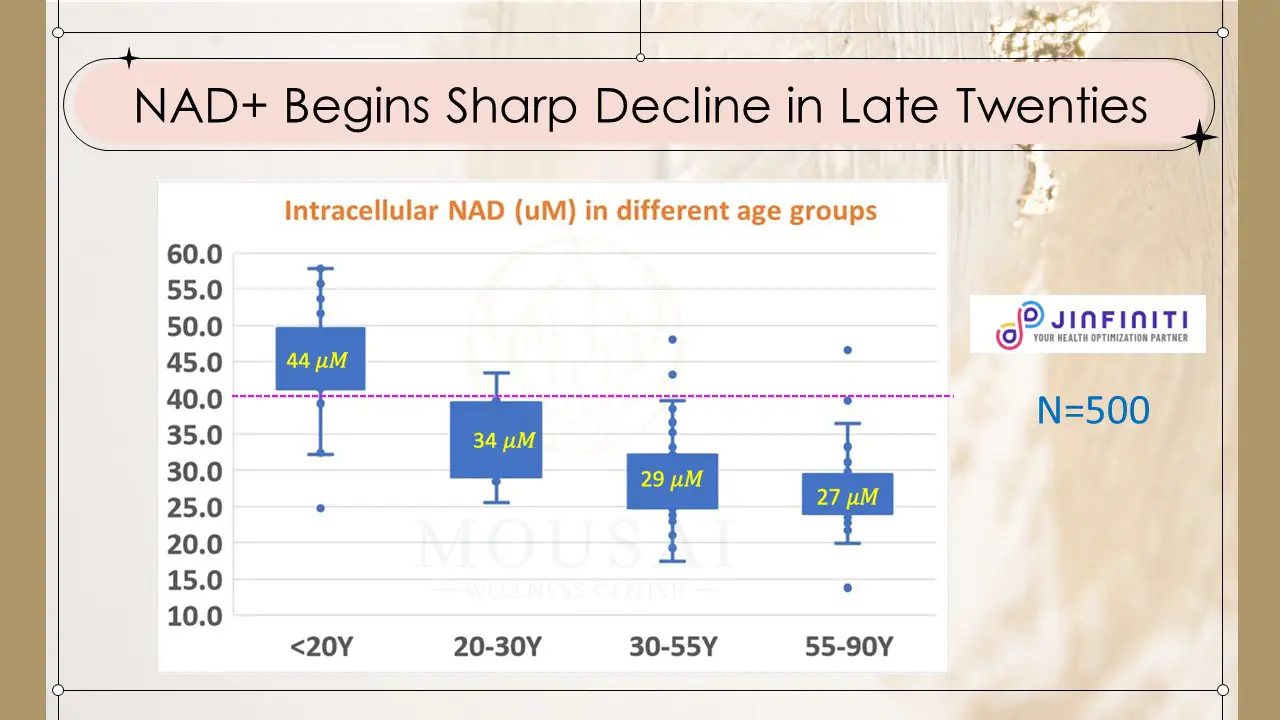
How Are NAD+ Levels Tested?
NAD+ LEVEL Testing involves a blood test that measures both NAD+ and NADH levels. This test helps you understand your body’s current state of cellular energy and overall health.
NAD+ vs. NADH – What’s the Difference?

NAD exists in two forms:
- NAD+ (oxidized form) accepts electrons and is involved in energy-producing chemical reactions.
- NADH (reduced form) donates electrons and can be converted back to NAD+ through oxidation.
This cycle is essential for maintaining optimal energy levels within cells.
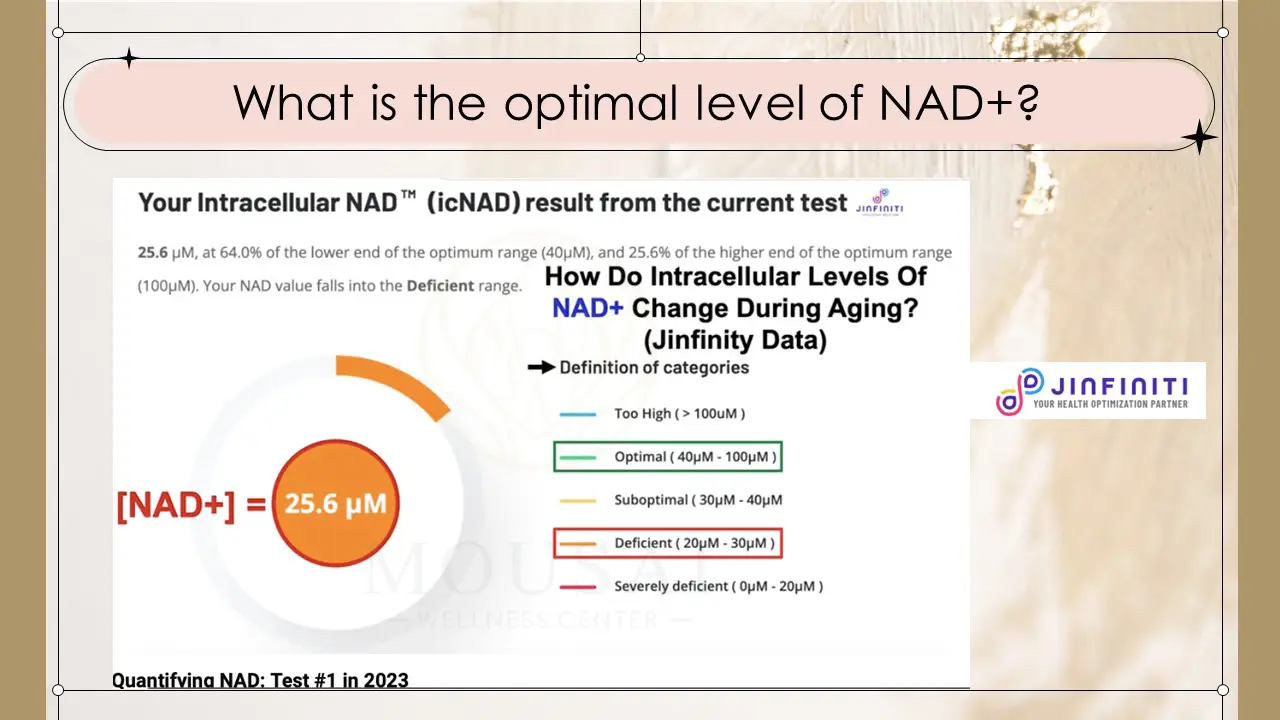
Ways to Naturally Boost NAD+ Levels
Improving lifestyle habits can help increase your body’s ability to produce and sustain healthy NAD+ levels:
Healthy Diet
A nutrient-dense diet with all five food groups and moderate calorie intake supports NAD+ metabolism.
Rest and Recovery
Prioritizing quality sleep and daily rest helps maintain circadian rhythm and cellular repair.
Exercise
Physical activity enhances the production of enzymes involved in NAD+ synthesis and boosts mitochondrial health. Exercise also improves heart, bone, and vascular function while reducing the risk of stroke and chronic disease.
NAD+ IV Drip Therapy
Intravenous administration delivers concentrated NAD+ directly into the bloodstream to support energy, cognition, and repair at the cellular level.
If you’re experiencing fatigue, skin dullness, poor focus, or sleep issues, a NAD+ Level Test can provide valuable insights.
Book your appointment at MOUSAI Wellness Center today to take the first step toward restoring your energy and vitality.



